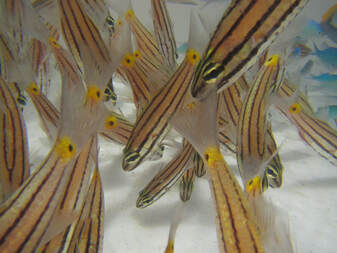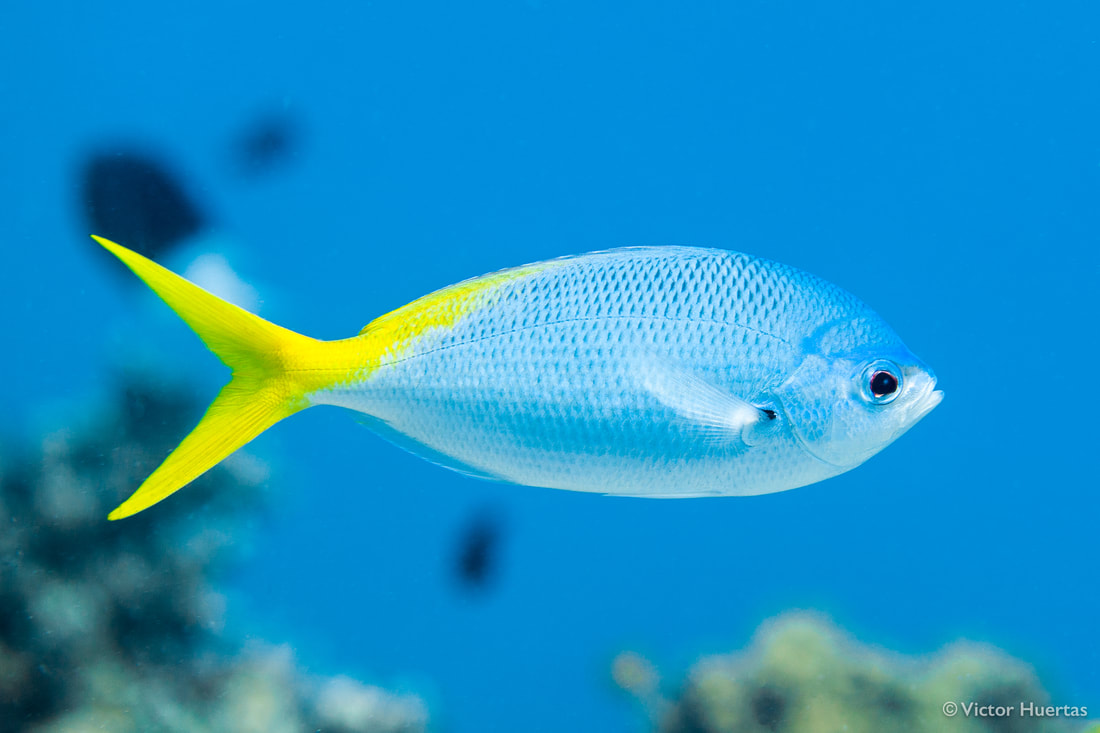|
After nearly 8 years and thousands of hours of work, our passion side project was published today in the journal eLife. Woo hoo!! Those of us that worked on it (all originally based at James Cook University, in Townsville, Australia) are now spread across three countries and four institutions. In this paper, our goal was to better understand how organisms respond in the short term to thermal challenges, which became even more ecologically relevant with the onset of the marine heatwave in 2016 that spurred a massive coral bleaching event on the Great Barrier Reef and around the globe. Even more immediately pressing than future climate change is the increasing frequency and severity of these extreme underwater heatwaves that we are already seeing around the world today, and this paper shows that not all organisms can deal with these rapid changes. We used the five-lined cardinalfish (Cheilodipterus quinquelineatus, left photo above, photo credit Dr. Jodie Rummer) and the red-belly yellowtail fusilier (Caesio cuning, right photo above, photo credit Dr. Victor Huertas), and found that the cardinalfish often exhibited high mortality in the face of rapid temperature increases. The fusilier, on the other hand, was quicker to make physiological adjustments to cope with this thermal challenge. “Our findings are immensely useful for scientists but also for managers, conservation planners, and policy makers charged with protecting important ecosystems, such as coral reefs, as well as communities who rely on coral reefs for food, culture, jobs, and their livelihoods. Collectively, we need to be able to predict which species are going to survive and which will be most vulnerable to climate change so we can take action, as the decisions we make today will determine what coral reefs look like tomorrow,” said my co-author Dr. Jodie Rummer (Associate Professor at James Cook University´s ARC Centre of Excellence for Coral Reef Studies).
Check out the article here: https://elifesciences.org/articles/59162
0 Comments
Leave a Reply. |
Archives
April 2023
Categories |


 RSS Feed
RSS Feed